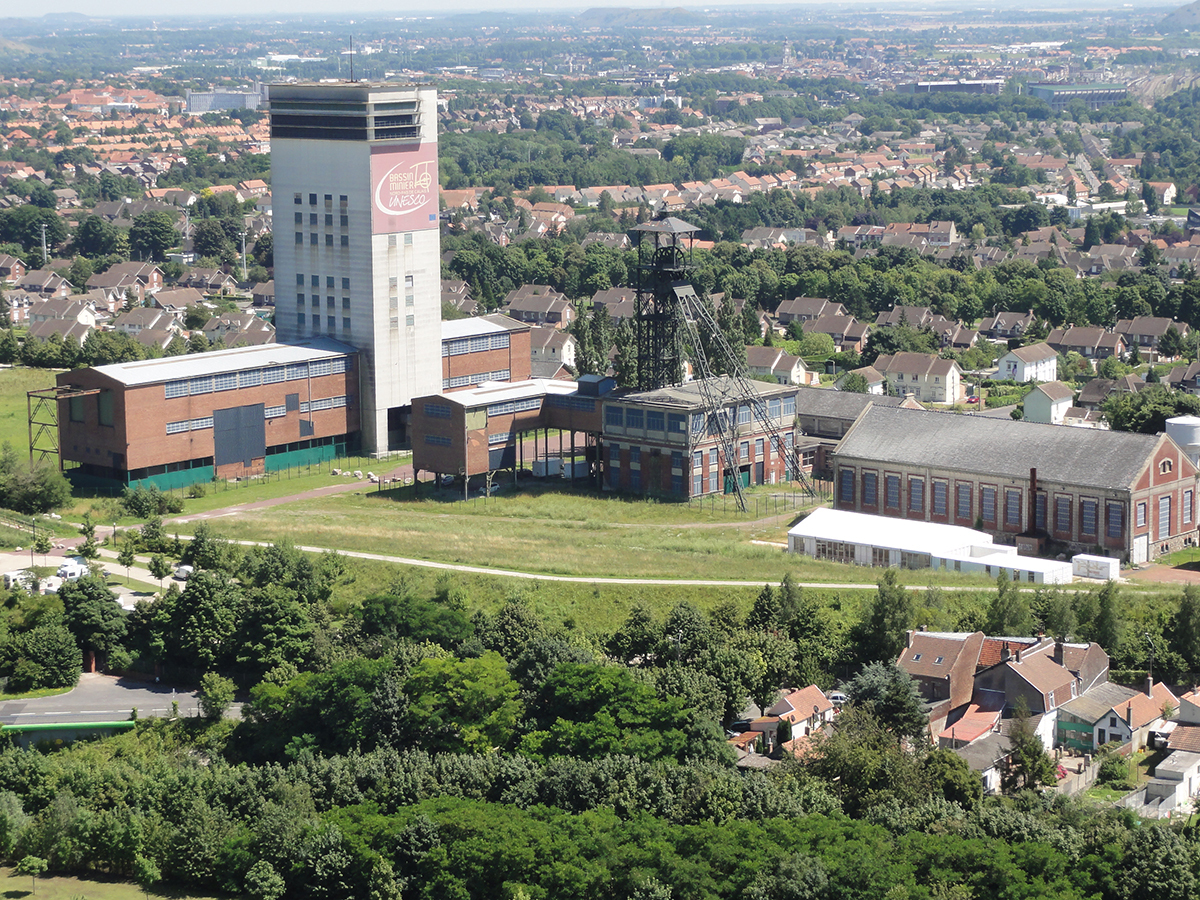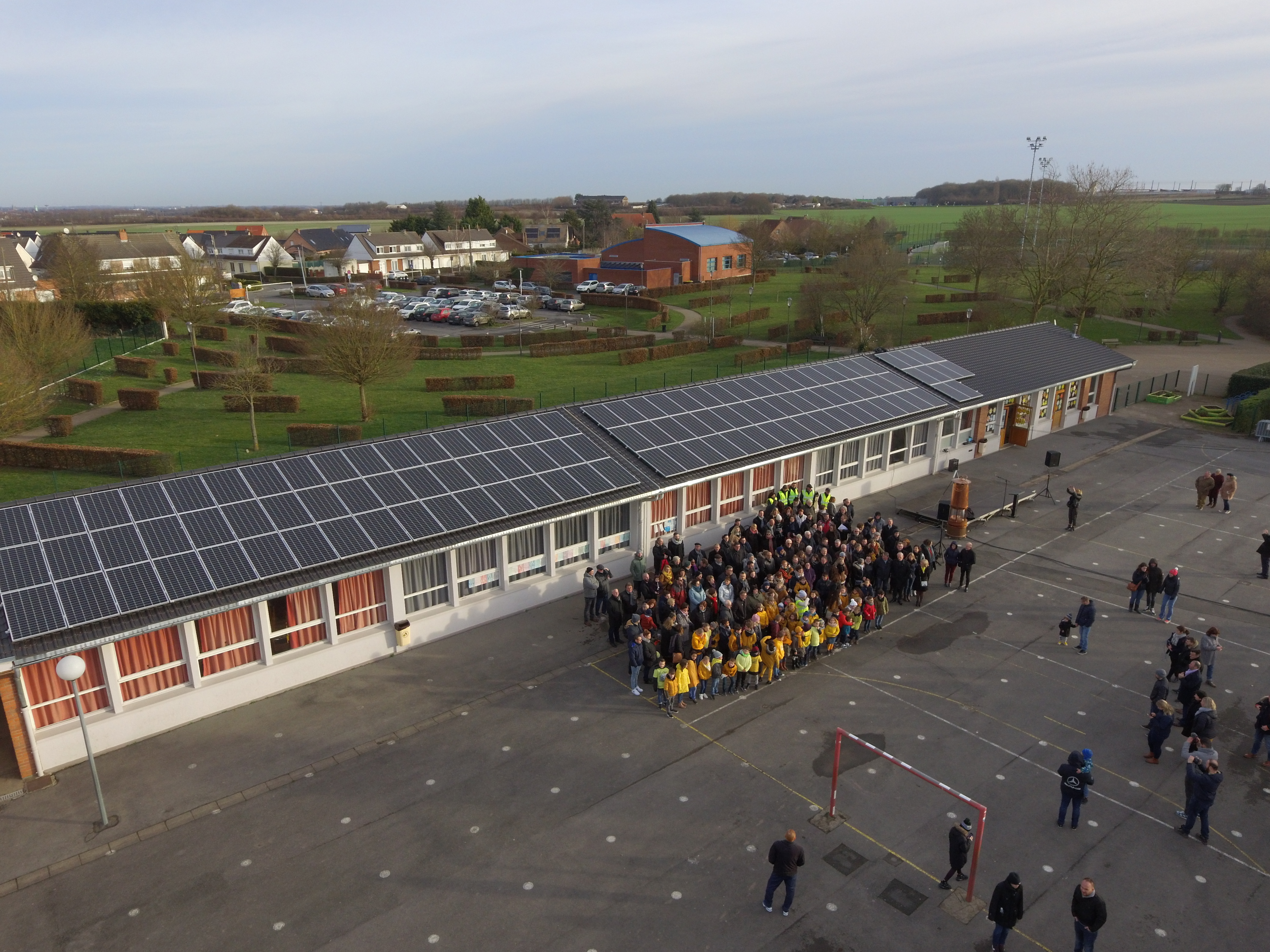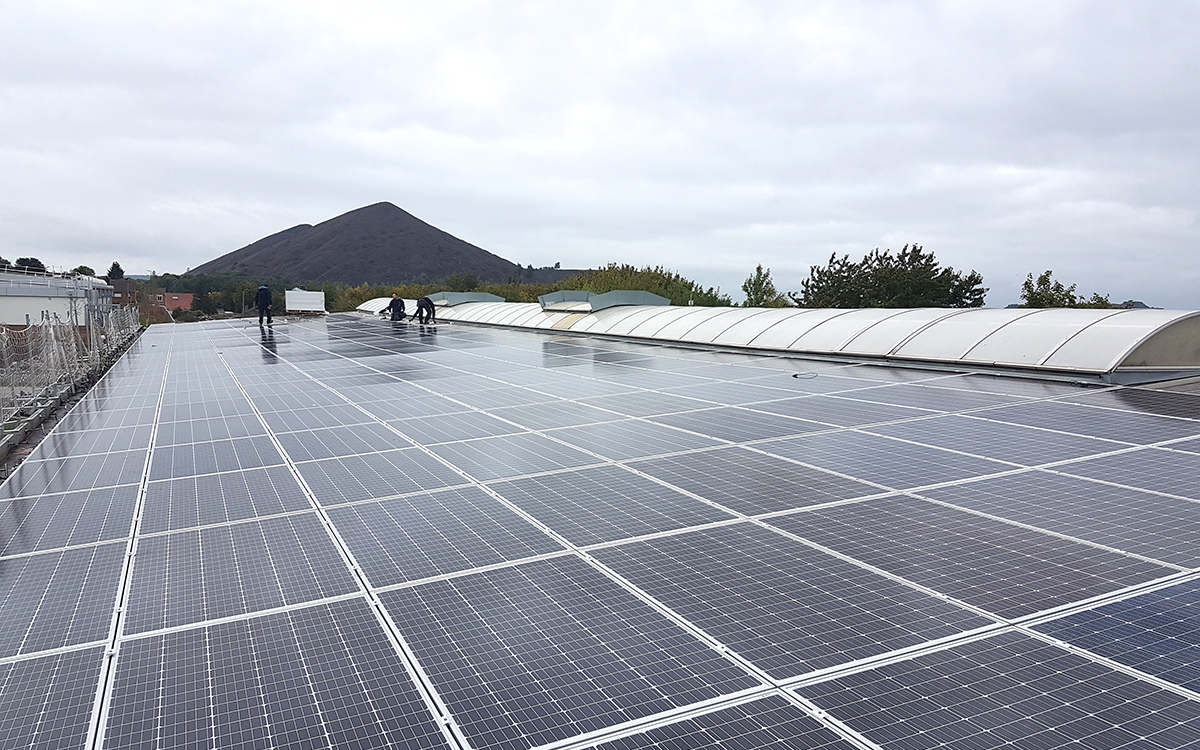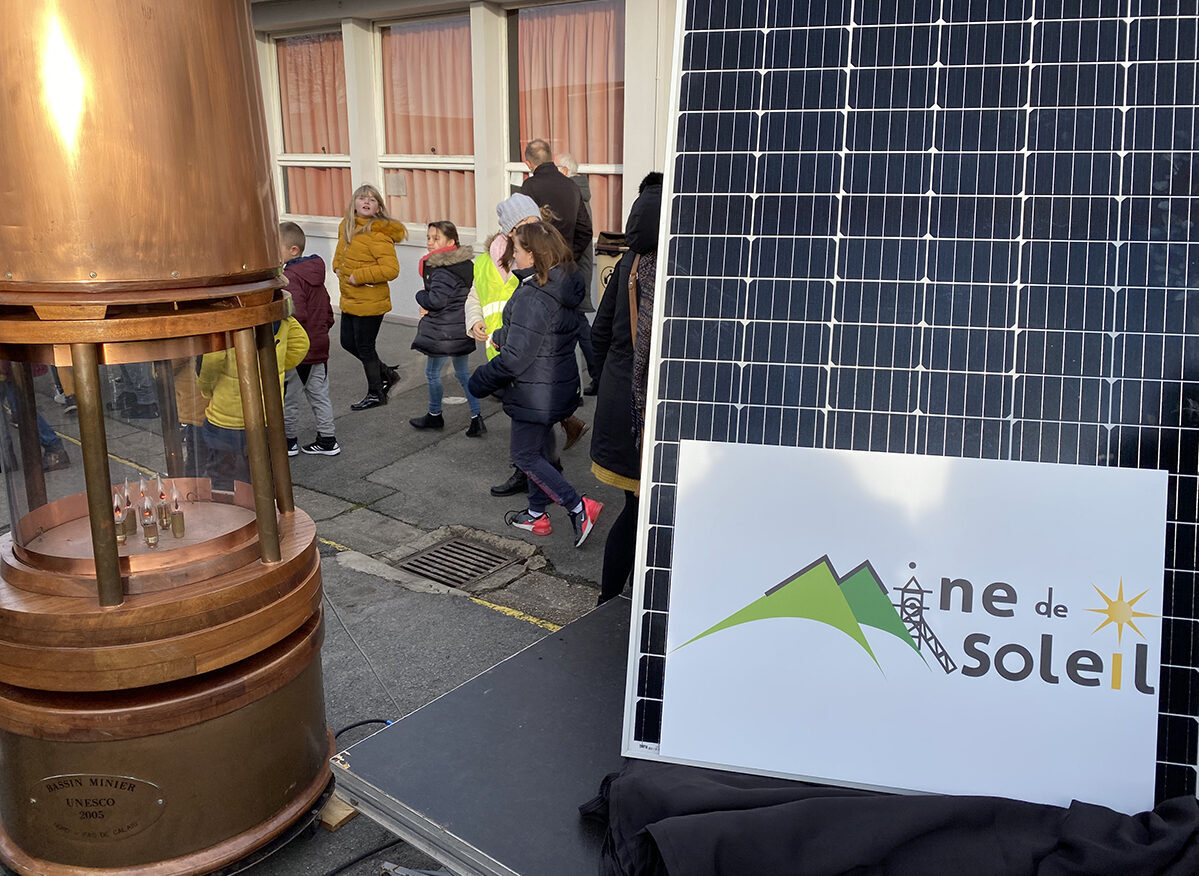Stories
February success story: Joining forces for a just energy transition
Community energy is key to action on the climate crisis. It can empower people, boost local economies, and reinvigorate communities. Community-led initiatives play an important role in the transition towards a 100% renewable and just energy future. Success stories of community energy projects can be found all over Europe. At REScoop.eu we want to highlight these stories to further accelerate the movement towards a cleaner and democratic system.
This month our journey takes us to the North of France to learn about Mine du Soleil, an initiative that brings together citizens, local authorities and private operators to generate renewable energy in a region with a mining history.
Embracing the mining legacy
Loos-en-Gohelle is a 7,000 inhabitants town in the North of France with a significant mining heritage. Like many other municipalities within the Nord-Pas-de-Calais basin, a mining area spanning approximately 4,000 hectares in Northern France, Loos-en-Gohelle endured the consequences of the coal industry’s decline in the 1980s. This shift resulted in numerous economic and social challenges for its residents, rendering it one of the 100 most economically disadvantaged cities in France. Moreover, after more than 150 years of intense mining, it also faced serious environmental degradation.
Rather than relinquishing its mining legacy, Loos-en-Gohelle embraced it, highlighting its heritage and seeking innovative uses for its former mining infrastructures in the transition to a green economy. As part of this transition, the municipality set a target to achieve energy autonomy by 2050. Lucas Nyszak, general director of services in Loos-en-Gohelle’s local government and a member and promoter of Mine du Soleil, illustrated the reasoning behind this goal in a local news article.
“Each year €14 million are spent by the city, households, businesses and enterprises in Loos-en-Gohelle on heating, lighting, and transportation. This amount is twice the total operational budget of the municipality. What if this money were directed towards future-oriented industries, generating jobs and prosperity for the region, all while safeguarding the planet?”
In this context, Mine du Soleil was established in 2019, bringing together local actors and citizens to collectively generate solar energy.

A collective structure to harness solar energy
Today, Mine du Soleil operates 2,380 m2 of photovoltaic panels, generating a collective installed power of 448 kW across eight municipal rooftops, including sports halls, multifunctional centres, and schools. This production is equivalent to the annual consumption of 175 households.
The initiative is participated by 126 citizens of Loos-en-Gohelle; the municipality; SEM Energies Hauts-de-France, a regional public agency that supports the development of renewable energy projects; and SUNELIS, a local PV installer. Each of these groups holds a seat in the board, though citizens could enhance their representation by increasing their capital participation. A citizens' advisory committee ensures that the board's decisions align with the initiative’s ethics and principles, or as Lucas aptly phrases: “to guarantee that Mine du Soleil continues being Mine du Soleil”. Although it doesn’t have employees, a group of volunteers manages the day-to-day operations with support from the administrative services of the regional agency, the municipality, and the PV installer.
The local government further incentivises citizen participation by gifting a €50 share of Mine du Soleil to every newborn in Loos-en-Gohelle – subject to parents' approval.

Looking ahead, the initiative aims to build additional solar power plants, not only within Loos-en-Gohelle, where they are looking for new spaces in supermarket roofs, industrial buildings and mining wastelands, but also in neighbouring municipalities. Lucas unveils a plan to install PV panels on the roof of a sports centre in Lens, the biggest city in the agglomeration; thereby expanding the initiative's reach to a new municipality and engaging more citizens. Lucas thinks even bigger: “If more towns express interest, Mine du Soleil could evolve into a regional tool for renewable energy development with citizen participation at its core”.
Building networks
Mine du Soleil values collaboration with other actors in the energy transition and actively builds connections with other stakeholders. For instance, the initiative is affiliated with the network of Energie Partagée, a REScoop.eu member that gathers and supports citizen energy projects in France. Energie Partagée supports them in developing a collective self-consumption model for upcoming installations – the energy produced in the first eight sites is sold to the network.
The municipality of Loos-en-Gohelle develops energy sobriety scenarios for the town in collaboration with NegaWatt, a French institute that supports energy transition projects. In the future, the collaboration with Negawatt may extend to Mine du Soleil to set up a support scheme aimed at helping people renovate their homes.

During the mining era, families in the region received free coal, enabling them to heat their badly isolated houses at no cost. However, with the mines' closure, families were burdened with energy expenses, which turned out to be quite costly due to bad insulation and high energy prices.
The scheme, still at the idea stage, would help citizens pay for the renovation costs – the French government subsidises a big part of the works, but the small remaining amount poses a financial barrier for many families. Funding for the program would be sourced from Mine du Soleil's revenues once they start generating profits.
Addressing energy poverty
In recent months, Mine du Soleil also joined the capacity-building programme of the Community Energy for Energy Solidarity (CEES) project. This initiative brings the project partner's experience and lessons learned on community solidarity mechanisms to around 15 energy communities through a series of workshops and capacity building exercises. Heleen Schockaert, project manager and energy poverty policy advisor at REScoop.eu involved in the project, highlights the programme's evolution into a platform for mutual exchange and learning.
In the case of Mine du Soleil, efforts are underway to develop an energy solidarity fund aimed at providing energy kits to citizens in vulnerable situations. These kits would help educate families on energy saving practices and provide ready-to-install or second-hand solar panels for installation in their homes.
In the longer term, they envision establishing a community-based self-renovation scheme to empower citizens to undertake insulation works, thereby making energy efficiency improvements more accessible through the involvement of volunteers, citizens, and learning institutions.
While these projects remain as ideas for now, they undoubtedly have the potential to strengthen the community and reflect the legacy of unity and collaboration ingrained in the city's mining past.
